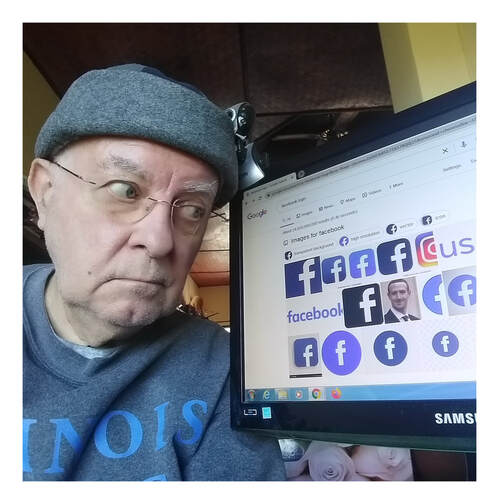|
I signed onto Facebook more than a decade ago in order to keep in touch with relatives who live far away, on the other side of the world in our case. Up to that point I was happy enough with letter-writing but I was losing contact with the younger generation. They were not all spending time on Facebook, but some were. For several years Facebook improved our connectivity and seemed valuable as a means to remember important days, and to respond to unfolding events.
Over time, Facebook evolved. It became complicated. First came ads. Long before social media there was mass media. TV had been free to us because of program sponsorship. Radio had worked that way. The Lone Ranger came thanks to Cheerios. Kraft and Hallmark brought quality entertainment into our living rooms so we did not always have to get into the car and go anywhere. In some cases, the ads became the main attraction, as during the Super Bowl. Our generation tolerated ads. After the ads multiplied on Facebook, sources became murky. We lost track of the origins or provenance of things showing up on our timelines. TV again inured us to blurred facts which had always been certain if they came with assurances by Edward R. Murrow, Walter Cronkite, or Huntley and Brinkley. Propaganda was clearly labeled. We had been lied to, but if that was exposed the liars were punished one way or another. We counted on a firm line between truth and fiction. Then news became entertainment. Cable TV, as I remember it, brought increasing options for news addicts. To break the monotony of constant recycles of the same clips, but to keep the pretense that the programs were about current events, they interviewed involved people, and then they developed their own celebrity experts. Inevitably, the news and views channels slid into selected points of view. There were “Christian TV” programs which became full-time channels alongside sports, reality TV, and on-line auction channels. We got used to this the idea that “it’s their channel and they’ll say what they want to say.” Then came Facebook. Facebook replaced Google-mail which had pretty well replaced airmail (beginning to be called snail-mail). After a few years something happened. Sometime between our initial signing onto Facebook and today, our contract changed. What we wanted was connection with people we know. Facebook expanded our list of contacts and our definition of “friends” as we found connections with people we used to know way back when. They are now people we no longer know and they have interests and opinions that generally surprise and sometimes shock us. They are into groups and are voicing opinions on our timelines that gets calculated by algorithms. So we are fed more of the same, whether it began with what we like or what somebody we hardly know likes. Say we don’t like it. It, that stuff whatever it is, aggravates us. Our mood is altered and we grow impatient. So we might speak “frankly” and then discover a meme that’s even cleverer. It delivers a satisfying slap. We post it. We’re on a roll. We didn’t intend to be, and it’s not like us to be feeling angry toward people we hardly know and their friends we never knew and don’t even want to know. We aren’t as likeable as we want to be. Social media turned each of us into our own editor and producer. Our audience was limited, to be sure. But we were in charge of our Internet domain. We could tell people what we would permit and compose whatever we wanted. Now we’re at a new threshold. We still post what comes to mind, but our minds are being bent. We didn’t intend to be angry so much of the time, and it’s not like us to be feeling angry toward people we hardly know and their friends we never knew and don’t even want to know. We aren’t as likeable as we want to be. Our minds are being invaded. What we “know” is being manipulated. The line between information and opinion has been destroyed. Facebook has evolved from a social networking website into the world’s biggest information platform. Facebook and WeChat are now challenging Fox, CNN and Xinhua as the largest purveyors of information and with everybody at the controls there’s nobody in charge of quality or veracity. This gives advantage to those with motives and technical skill to bend our minds, and they are taking advantage of it. If you doubt your mind is being targeted ask yourself, “Am I angry when I don’t want to be?” “Am I suspicious of people I don’t even know?” “Do I know that what I fervently believe is true?”
0 Comments
Leave a Reply. |
AuthorRev. Dr. Kenneth Dobson posts his weekly reflections on this blog. Archives
March 2024
Categories |
| Ken Dobson's Queer Ruminations from Thailand |
|

 RSS Feed
RSS Feed
